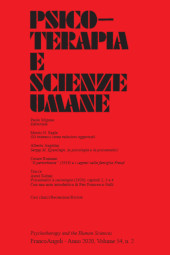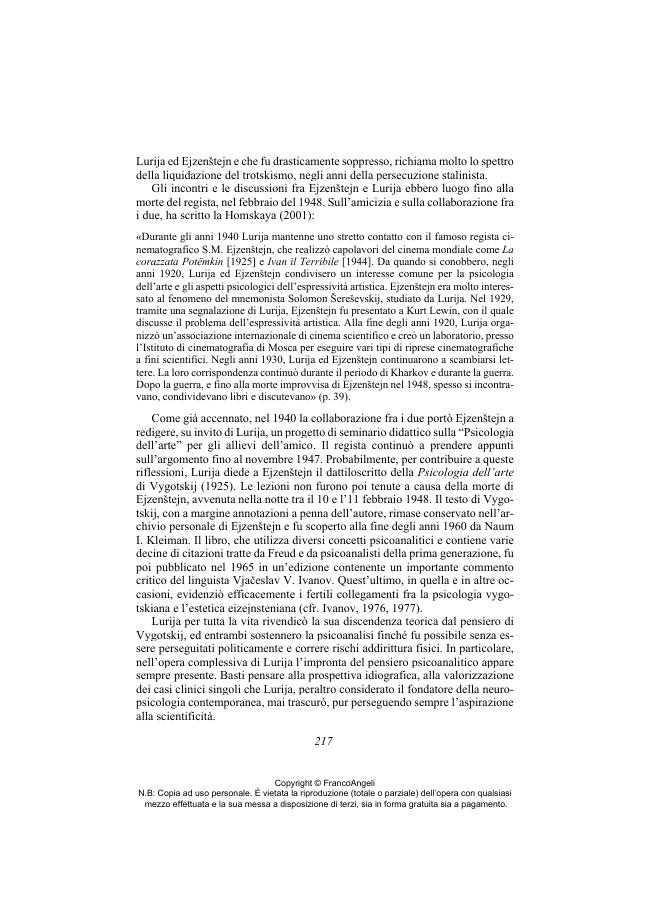Sergej M. Ejzenstejn, la psicologia e la psicoanalisi
199-234 p.
Sergej M. Ejzenstejn si interessò molto alla psicologia e alla psicoanalisi. Fu grande amico di Lev Vygotskij, fondatore della scuola storico-culturale, e di Aleksandr Lurija, capostipite della neuro-psicologia, i quali nei primi anni 1920 furono vicini alla psicoanalisi, sostenendola in Russia e aderendo alla Società psicoanalitica di Mosca. Negli scritti di Ejzenstejn sul linguaggio cinematografico troviamo concetti psicologici di Vygotskij come l' "agglutinazione" e il "monologo interno", presenti nella teoria del montaggio. Rispetto alla psicoanalisi, Ejzenstejn s'interessò alla regressione: il fruitore dell'arte, anche cinematografica, deve regredire e insieme attivare la parte più matura della psiche. Ejzenstejn fu amico di Hanns Sachs e conobbe Otto Rank, Sándor Ferenczi, Franz Alexander e Wilhelm Reich. Nel 1929 tenne una conferenza presso l'Istituto psicoanalitico di Berlino. In URSS e negli USA ebbe due brevi esperienze di terapia a orientamento psicoanali-tico. [Testo dell'editore].
Sergej M. Ejzenstejn was very much involved with psychology and psychoanalysis. He was an important friend of Lev Vygotskij, founder of cultural-historical psychology, and of Aleksandr Lurija, father of modern neuropsychological assessment: both Vygotskij and Lurija in the early 1920s were among the supporters of psychoanalysis in Russia and members of the Moscow Psychoanalytic Society. In Ejzenstejn's writings on film language we find psychological concepts of Vygotskij, such as "agglutination" and "internal speech", that were present in the theory of film editing. As far as psychoanalysis is concerned, Ejzenstejn was very much interested in the concept of regression: the art lover, including the movie spectator, must regress and at the same time activate the most mature part of the psyche. Ejzenstejn was friend of Hanns Sachs and knew Otto Rank, Sándor Ferenczi, Franz Alexander, and Wilhelm Reich. In 1929 he gave a lecture at the Berlin Psychoanalytic Institute.
In the USSR and in the USA he had two short experiences of psychoanalytic therapy. [Publisher's text].
Ist Teil von
Psicoterapia e scienze umane : LIV, 2, 2020-
Artikel aus derselben Ausgabe (einzeln erhältlich)
-
Informationen
ISSN: 1972-5043
KEYWORDS
- Cinema sovietico, Marxismo e psicoanalisi, Cinema e psicoanalisi, Lev Vygotskij, Aleksandr Lurija
- Soviet cinema, Marxism and psychoanalysis, Cinema and psychoanalysis, Lev Vygotskij, Aleksandr Lurija



